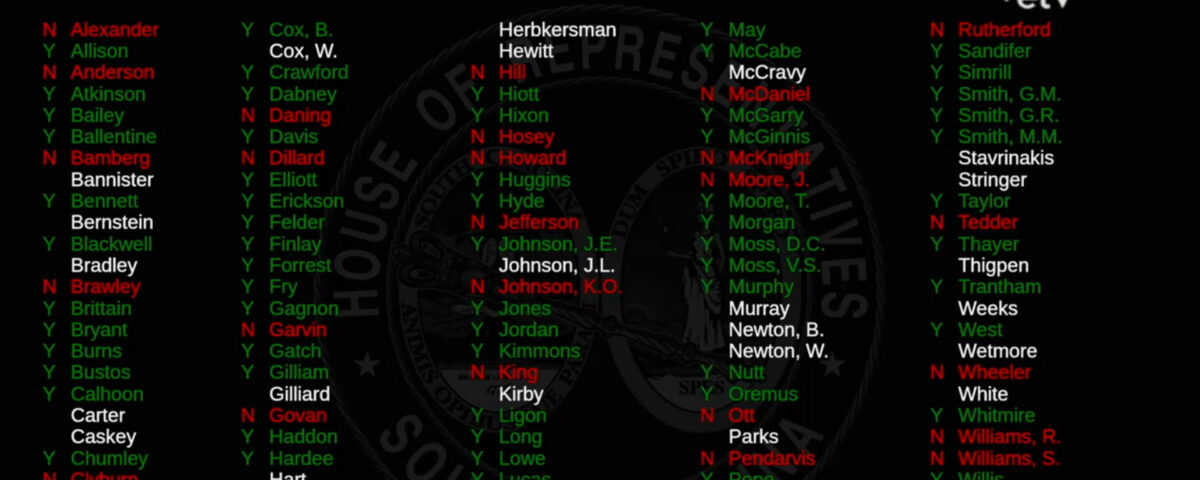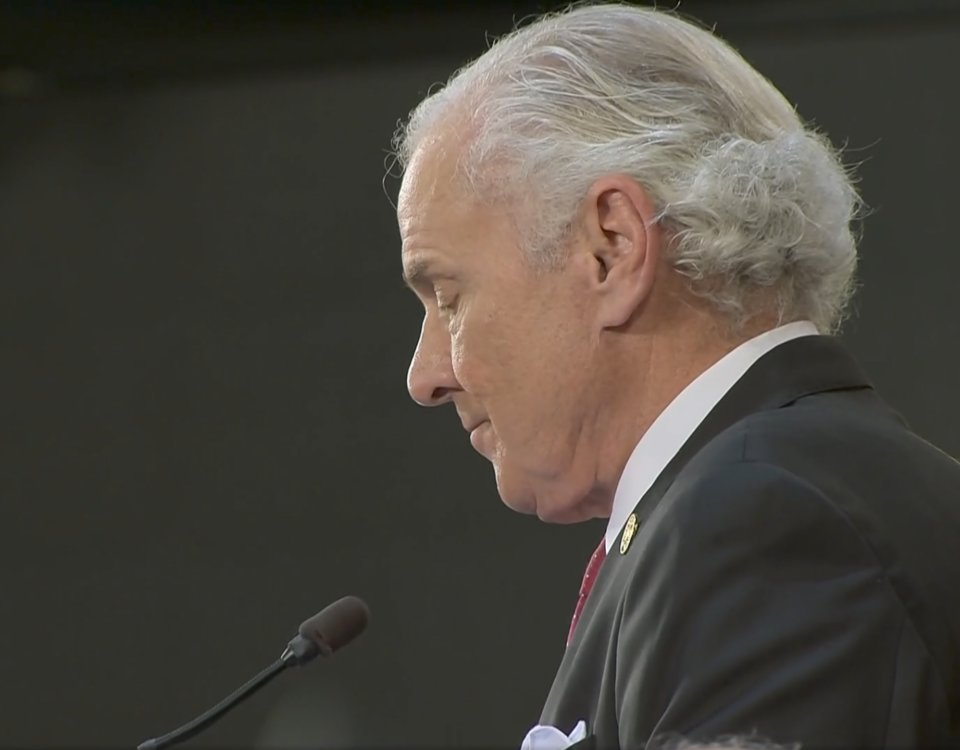Biden Administration Vaccine Mandate – OHSA ETS Released
November 5, 2021
Moving the Upstate Forward into 2022
January 3, 2022Defeating Anti-Business Legislation

We’ve received a number of comments and questions about the Coalition’s stance on H. 3126 — the anti-vaccine mandate bill. I’d like to outline the position on the bill and why we took such a strong stance of opposition.
Before I dive into the timeline, let me state clearly: This position was not in favor or against a vaccine mandate, not in favor of the Biden vaccine mandate, or only in opposition to the House GOP position. This quickly became an anti-business labor law bill in the subcommittee, which is when we got engaged.
So, for last week’s timeline:
Monday Evening, 12/6: Members of the House staff reached out to several state business associations asking if they had any problems with H. 3126 (original bill). While the UCC was not consulted, staff from the other business groups indicated to me and to staff – both officially and unofficially – that they were OK with the bill since it didn’t address private businesses. Again, while we weren’t consulted, I would have responded the same way: We don’t have any direct concerns because it does not directly involve businesses and would probably not take a position on the bill.
Tuesday Morning, 12/7: A House Ways and Means subcommittee takes up H. 3126. After testimony was taken, a “strike and insert” amendment was presented – and quickly approved. A strike and insert amendment deletes the original text of the bill and adds the text of the amendment essentially a new bill. This new bill:
- Prohibited any private enterprise from terminating or suspending an individual who refused a COVID-19 vaccination, no matter the size of the business.
- If a larger employer was subject to the federal vaccine mandate, it allowed employees to require testing paid for by the state.
- There were no testing provisions for businesses with fewer than 100 employees.
- Section 4 of the bill opened a new civil cause of action against businesses that would have required paying back wages and reinstatement with a statute of limitations of one year.
It should be noted that in the past the UCC (and other business groups) have always been reflexively against any bill that opens new causes of action against businesses. After talking to labor attorneys at major national law firms, they advised that this would open the floodgates for lawsuits against businesses of all sizes – whether the employee was vaccinated or not. In addition, those lawyers also contended that pretty much any termination of any employee would wind up in litigation through this section from employees and plaintiff’s attorneys seeking nothing more than a settlement. One prominent labor lawyer said to us pointedly: “This bill represents yet another effort to erode the employment at will doctrine and is an unnecessary intrusion on employers’ ability to determine the most effective policies to provide a safe environment for employees, customers and patients.”
This bill was now an anti-business labor law bill, not a vaccine or federal funding bill. Between the new cause of action and the Republican intervention into the internal operations of business (the flip side of the same coin for the federal vaccine mandate on private businesses), business groups across the state quickly mobilized to oppose it. It should also be noted that nobody we know in the business community saw, read, or had knowledge of the subcommittee before it was proposed and passed. We didn’t even receive a written copy of the amendment until close to four hours after the adjournment of the subcommittee meeting.
Wednesday, 12/8: The UCC worked with NFIB on a statewide effort to create a joint statement about the bill that had 28 organizations sign on:
“South Carolina has a long-held tradition of being a pro-business state that allows businesses to operate with minimal government intervention. Employment decisions have been left to individual businesses in our state, subject to what each business believes is right for their operations. The ability for businesses to operate without government overreach has, and will continue to be, a key building block of our state’s booming economy.
“We ask the General Assembly to support free enterprise and reject this unprecedented step against the internal operations of our state’s job creators.”
Thursday, 12/9, 10:30 a.m.: The House Ways and Means Committee approves the bill as written on a party-line vote. Rep. Shannon Erickson (R-Beaufort) was the only Republican to vote against. Thanks to Rep. Chandra Dillard (D-Greenville) for her pointed line of questioning about how this bill would impact at-will employment in the state.
Thursday, 12/9 Noon: The House Rules Committee sets H. 3126 for special order.
Thursday, 12/9, 12:30 p.m.: The full House begins debate. There were 16 amendments offered, including one from Rep. Jason Elliott (R-Greenville) and Rep. Erickson that struck the cause of action and the private employer mandate ban from the bill. They adjourned debate on that amendment because after a full day of pressure from business groups and leaders from across the state, we were told at about 4 p.m. that there was a compromise amendment being offered by the GOP leadership. The “compromise” amendment:
- Eliminated the private employer vaccine mandate ban.
- Eliminated the civil cause of action.
- Added a sunset clause on the legislation of December 31, 2022.
- Opened access to unemployment for any employees terminated because of a vaccine mandate.
That amendment passed 68-28 and the final bill passed 60-25.
Friday, 12/10: The House gave the bill third reading and sent it to the Senate. According to conversations I’ve had with Senators, the Senate is not expected to return to deal with the bill until its regularly scheduled return date of January 11th.
That is the timeline to this point. We’ll keep our investors informed as we move forward into 2022.



